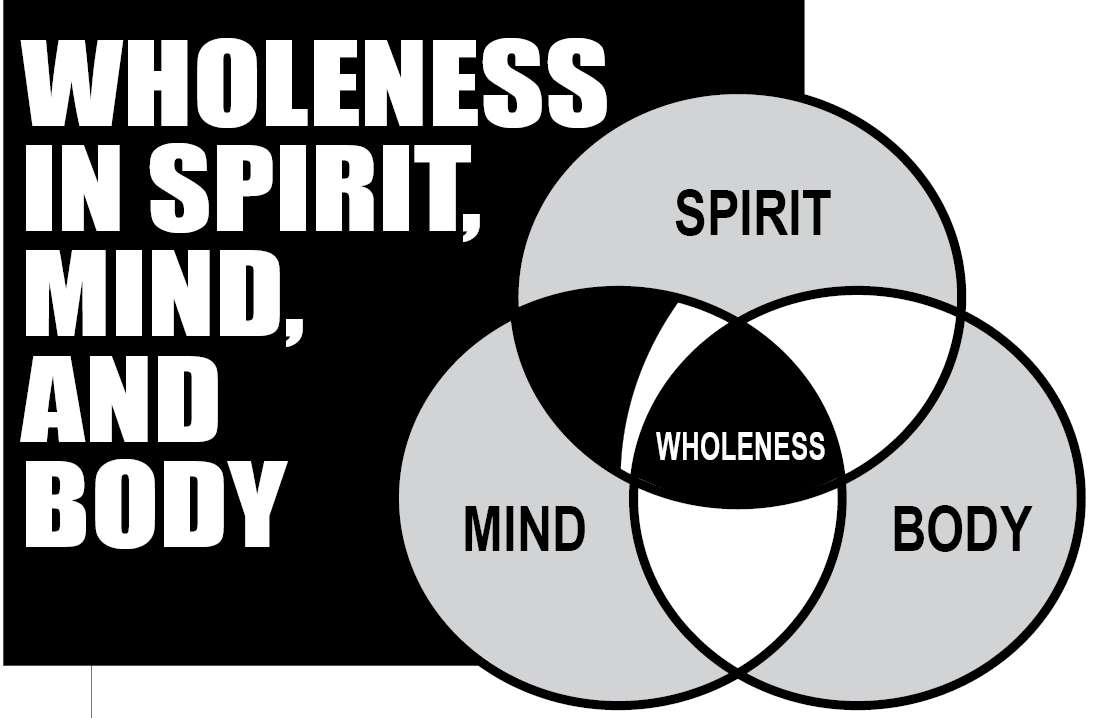

Care for the Old Age: A Pastoral Perspective
Dr. Varughese Philip
In human life cycle, everyone will experience the various stages unless the death does us apart. No stage is permanent. We are forced to move on from one stage to other even if we do not like to. The last stage which is largely known as old age is a difficult stage in life. A recent survey says that in India, more than 8% of the population is above 60 years. The global report of aging in the 21st century (2012) observes that in India, “there are multiple discriminations experienced by the old age people. Among the older people women appears be facing more challenges. Some of the major problems such as health care, loneliness, joblessness, rejection, abuse, denial of the right to own and inherit the property, lack of basic income and social security.” Scripture gives a command than advice saying, ‘honor father and mother’as the only commandment that proffers longevity for those who keep it (Ex. 20:12). Pastoral care is the call and commissioning of the church to participate in the compassionate care of the old age. This article highlights the characteristics and concerns of the old age and the caring ministry of the pastors andthe church at large.
1. Characteristics of the Old Age
Even though there various theories, it is accepted that the old age begins between sixty and sixty five. World Health Organization defines old age based on chronology, change in social role, adult status of children, menopause, change in capabilities, senility, and change in physical characteristics. In order to understand the characteristics of the old age, it is significant to understand the theology, personality, and holistic changes in old age in the life cycle.
Christian theology asserts that human beings are created in the image and likeness of God (Gen 1:27). Older people are to be respected, cared for, and loved because they are image bearers. Their dignity and mission are in the Image of God, which has Christological dimension. Created in God’s Image is for relationship with God and with one another. Bible is realistic in its portrayal of old age, positive in its attitude towards value of old ageand specific in its command concerning caring in the old age as well. Image retains dignity even if body and mind fail.
According to Psychologist Erikson, “old age is characterized by ego integrity or despair.” Life satisfaction leads to ego integrity and those who are fallen short of earlier expectations experience despair. Studies show that there are four personality types prevail among the old age. First, old age with integrated personality functions well, intellectually able, and have complete egos. Second, defended personality types are achievement oriented, who continue working hard and fight the aging by remaining active. Third, passive dependent types are given into the inevitability of aging and become inactive and depend on others. Last, disinterested types experience a deterioration of thought process and are confused, disoriented, forgetful, childish, and paranoid. Knowledge of personality types helps the pastors to do effective pastoral care.
There are irreversible changes in the old age. According to Christian Counselor Gary Collins, major physical changes in old age are cosmetic changes, sensory changes, biological system changes,sexual changes, and diseases. As a result, physical strength declines, illness accumulates, and attention is drawn to fear of disease and contemplation of death. Psychological changes take place due to reduced income, loss of spouse or close friends, loss of personal identity, and feeling uselessness. It affects the self-confidence and self-esteem. Emotional changes are due to adjustments centering on relationships with spouse, children, grand children, children who are busy and far away, and changes in sexual behavior. Cultural and technological changes complicate the life of older people. Spirituality waxes and wanes with age. Aging is a spiritual journey and spiritual malnutrition is possible in old age. Sense of guilt and burden of failure affect spirituality. Pastoral care requires a holistic perspective.
2. Concerns of the Old Age
The major concerns of old age are adjustment issues with their children’s families, adaptation of old age, abuses in old age, awareness of identity and anxious about health. According to psychologist Elizabeth Hurlock, major family life hazards of old a
ge are sexual deprivation, changes in sexual behavior, loneliness, living arrangements, and role changes. It results in masturbation, erotic dreams, day dreams and thinking about sex.Those who were the head of the householdfind it hard to living as a dependent in old age. They may become more rigid in thinking, conservative in actions, prejudiced in their attitudes, and self-centered. They need an adaptive attitude.Adaptation requires adjustments based on changes taking place. It is ascertained that adjustment depends on “quality of behavior patterns, changes in emotional behavior, personality changes and life satisfaction or happiness.”
Similarly, physical, psych- ological, financial and drug abuses are concerns of old age. Physical abuse includes withholding of personal care, food and adequate medical attention. Psychological abuses are verbal assaults, threats, isolation, treating like children, and neglect. Financial abuses are exploitation by misuse of their money, personal properties, and trying to control their assets.Drug abuse is by giving too much of drugs to keep the elderly manageable. Also, there are violations of rights by forcing parents to stay in nursing homes. Sometimes church dishonors elderly by focusing ministry on children, youth and families, equating worth with occupation, electing young people for position, constructing church without considering the easy movement of elderly, and scheduling church programs that works against elderly. Over all, church seems to be neglecting the old age people. In the church, worships are more youth friendly than elderly. Old people cannot stand or sit for long time. Hence eventually, older people find themselves that the church does not consider their concerns for the elderly and aged.
Likewise, awareness of identity is a concern for many elderly.Retirement leads to loss of status while prestige leads to identity breakdown. Aging
can be accompanied by financial impoverishment, disappointment of dreams unattained, and betrayal by children or spouse, and minimal estate to pass on. Unfavorable attitude towards retirement leads to ill health. Anxiety about health produces panic and depression. Research shows that older people in general do not report higher levels of death anxiety. Low death anxiety is related to dissatisfaction with a life that is no longer considered worth living. There is a sense of inability to keep up with the ever increasing pace of change, and feeling of uselessness. It affects their faith, spirituality, and relationship with God.
3. Caring Ministry of the Pastors
Pastoral care is “the solicitous concern experienced within the religious community.” It contains the idea of care and cure of the soul, with the emphasis on transcendental destiny. Care is to support wellbeing and cure is to restore wellbeing. It requires focusing on healing, health, and holiness. It is a “helping act directed towards healing, sustaining, guiding and reconciling of troubled persons.” Healing involves restoration of wholeness, sustain involves helping a hurting person to endure difficult circumstances, guiding consists of assisting confident choices, and reconciling seeks to establish broken relationships. There is a need to integrate psychology and theology for a holistic pastoral care. For an effective spiritual care for elderly, it is essential to focus on existential enrichment, empathic understanding, external relations, ethical awareness, and ecclesiastical presence.
3.1. Existential Enrichment
Old age increases the existential emptiness and inner anguish. Spiritual support
is a way of helping older people in their search for hope and meaning, especially as they face issues of grief, loss, illness, and uncertainty. Pastors need to encourage the older people to focus on future instead of past failures, guilt, and feeling of inadequacy. Research shows that spiritual beliefs and practices would help to cut down the
stress of physical and mental illness; reduce symptom severity and relapse rates, speed up recovery, and render distress and disability easier to endure. Spirituality helps to develop healthy behaviors and effectively deal with sufferings. Pastors need to focus
on questions about life after death, consistent relationship with God, strengthening
faith as support in life, and prayer that brings peace. Spiritual support resolves the problems of existential emptiness and enhances faith and hope.
3.2. Empathic Understanding
Aging requires empathic understanding. It is a journeying with older people in their search for meaning, when life itself seems threatened. Heart of pastoral care is listening as the elderly attempts to articulate their experience. It requires spiritual reminiscence.Talking about previous religious and spiritual events giveolder people a chance to review spiritual needs and develop new friendship with each other. It helps to develop strategies to accept changes in life, losses of significant relationships, and increasing disability.The aged requires a person-centered care, which involves time, attention, and listening. Empathic understanding challenges to discover unique
growth possibilities, encourages using the resources of their faith, and enhances confidence. Memories are part of resilience and positive memories of children and church reinforce sense of identity and self-worth. Positive self-worth takes away negative effects of aging.
3.3. External Relationships
Old age has many relational issues. Relationship with God, spouse, family, and church are important for maintaining spirituality and adapting the aging process.Relationship with God requires purity and holiness. Sexual striving is a source of physical sickness or psychoneurotic disorders in old age. It may direct towards children and youngsters and drive them breaking the moral law. Pastors should encourage the aged to keep busy in studying, singing, and participating in ministries to keep their minds away from sexual fantasies. Also, inspire them to maintain meaningful relationships with family, intergeneration, and church community. Spiritual guidance helps making positive choices to face challenges. Supportive loving relationship enhances self-esteem and happiness.
3.4. Ethical Awareness
Pastoral care of the aged involves teaching biblical ethics. They need special
advice and encouragement. They should be temperate, worthy of respect, self control, and mature (Tit 2: 2-3). Older women should live in reverence and avoid moral failures.Mental and physical activity will keep from becoming apathetic, lethargic, and senile.Pastors should educate them onself perception, perception of others, perspective
on relationships, perspective on end of life issues, and view of death and dying.They need an awareness of physical incapability, mental incapacities, diminished capacity for recognition, and death expectation. Teach elderly to think biblically and realistically.Specific instruction is essential for personal and social adjustment. It is significant
to stimulate an adaptive attitude using their internal and external resources. It’s a part of the pastoral duty to prepare the old age people to focus on the heavenly family and prepare them to be ready to meet the Lord for which they have been waiting until this age.
3.5. Ecclesiastical Presence
A conscientious pastor cares for the elderly and is willing to take risk for them. Pastors need to watch over the aged, whom the Holy Spirit has placed in their charge.Elderly who suffers from geriatric diseases show feelings toward death. They often want to die, believing they have nothing to live for. They wish for cessation of their physical and mental distresses, but when they feel the hour near they become disturbed and afraid. They cling to others and want them near at all times. Review with them how they have spent the best portion of their lives for the kingdom of God and recount blessings that God has showered upon them. Give them opportunity to praise the name of the Lord and to express their trust in His glorious return. Pastor’s non-anxious presence with the sick and loving touch conveys reassurance and comfort. Sacraments, music, reading scripture, reciting psalms, and intercessory prayer play a significant role in healing and reviving elderly.
4. Commitment of the Church
Pastoral care is also a corporate endeavor of the community. It is rooted in the call and commissioning of the church to participate in the compassionate care of God. The central theological theme that guides pastoral care is agape. Commitment of the church as a community ofhealing, hearing, honoring, and helpingparticipates in God’s redemptive activity.
4.1. Healing Community
The church needs a concern of spiritual, social, and physical wellbeing of the aged (Acts 6:1-4).Healing relationship with the elderly in the church will enhance wellbeing. Research shows that “frequency of negative interactions with church members is positively associated with depressive symptoms and psychological distress.” Church should facilitate social support to enhance self-esteem and overall happiness. Provide a place for ministry and volunteer service in the church to reduce stress, depression, and anxiety. Assist the aged to obey the laws of health and promote independence.Alert to check unknown dangers, voice of strangers, dreams, and Satan’s tactics to compensate for spiritual deficiency of the old age. Equip laity for ministering the sick and elderly. Take initiative to educate the elderly widows, encourage them and employ them to work for the betterment of believers and use their resources to bring unbelievers to faith.
4.2. Hearing ommunity
Realize spiritual growth and development of elderly through active participation in church services. Church should consider programs that meet physical, emotional, social, and spiritual needs of the aged in the congregation. Gospel services should be lively by music, group singing, and visual aids. Recite memory verses in unison. Due to the short attention span, each program should last not more than thirty minutes. Create a warm environment for learning and shift the orientation from subject centered to problem centered. Consider discomfort in sitting on hard pews for two hours, steps, distance to washroom or drinking fountain, temperature fluctuation, and position for praise and prayer. Identify and address the hidden geriatric problems.
4.3. Honoring Community
Honor and respect of the elderly are clearly taught in the scripture (Lev. 19:32). The church can honor elderly by providing a sense of belonging. Provide a church atmosphere as nearly like family atmosphere as possible. Address an elderly person as "uncle," "aunty," "grandpa," or "grandma," in a respectful manner to feel the belonging. Mention past achievement for God in soul winning or other activities briefly in an appropriate way.Acknowledge the contribution of the elderly to the church and honor them once or twice in a year. Elders are people with resources for the ministry and responsible for serving examples. They have wisdom that comes from many years of experience. Also, they have time to do volunteer activities that busy members cannot undertake.Honor the wisdom, experience, and availability of the aged.
4.4. Helping Community
The church should help the elderly in flexible attitude and cooperative spirit. They are characteristically conservative and resistant to change, whether of routine, arrangement, manners, morals, or opinions. It is the symptom of a physical decline. Some elderly may think that the content of the sermon preached or some of the church policies are not in harmony with the principles of the church.There is a strong tendency to hoard material things in the old age. They desire to hold on to whatever they possess. Teach them how to be unselfish and generous. Some are concerned about their property and position in the church and not ready to transfer to the next generation. The church needs policies to handle such attitudes and overcome their desire for the earthly pleasures, empty promises, and escalating power.
5. Conclusion
In conclusion, aging is part of God’s creation in the life cycle of both human and any living being. Aging is also a part of a spiritual journey. Process of aging requires process of spiritual support. Effective pastoral care is possible by responding to the theological factors, personality, and holistic changes in old age. The major concerns of the aged are adjustment to families, adaptation of old age, abuses in old age, awareness of identity, and anxious about health. These concerns affect the spirituality of the elderly.
Pastors need to focus on health, healing, and holiness of the aged. Pastoral care requires pastors’ spiritual support for existential enrichment, spiritual reminiscence through empathic understanding, spiritual guidance in external relationship, scriptural instruction for ethical awareness, and strengthening faith through ecclesiastical presence. Church has the responsibility to give support to the aged by remaining as a healing community, hearing community, honoring community, and above all a helping community. It helps the elderly in their aging journey to build confidence, sense of purpose, and hope to proceed to the eternity which is our uttermost purpose of the journey on this temporary life that has various stages. In the eternal home, there does not seem to be aging. Hence, church and Christian leaders provide care and prepare the aged to non-aged life.



